Film of the Week: Always Shine
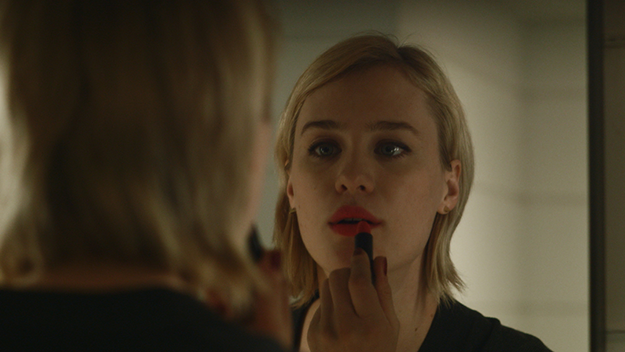
Readers of an august cinephile organ like this would probably balk at seeing a film called Always Shine unless they suspected the title was ironic. Trust me, in the case of Sophia Takal’s second feature, it is. The film begins with a caption, a quotation from The Secrets of Poise, Personality and Model Beauty by John Robert Powers: “It is a woman’s birthright to be attractive and cheery. In a sense, it is her duty… She is the bowl of flowers in the table of life.” Talk about laying your cards on the table: Always Shine doesn’t really need to set out its ironic stall quite so obviously—we’ll get the point quickly enough.
The film begins by pulling a switcheroo on us, in a slightly over-familiar way. In medium close-up, a young woman looks to camera with tears and terror in her eyes: “Please don’t kill me,” she pleads. “I’ll do anything that you want.” It comes as no surprise when male off-screen voices tell her she doesn’t need to undress just yet: “That won’t be necessary now—we can see how beautiful you are.”
You’ll probably have figured things out by this point even if you haven’t seen Michael Haneke’s Code Unknown, which, if memory serves, plays a similar trick with a scene involving Juliette Binoche’s character, an actress playing a victimized woman in a thriller. The woman in Takal’s film is Beth (Caitlin FitzGerald), a young Hollywood actress screen-testing for a role that, the men in the room clarify, involves extensive nudity and will be “very vérité, a lot of long takes.” But she shouldn’t worry, they tell her, they’ll make sure she looks beautiful: “Whatever, sweetheart—it’s all about you.”
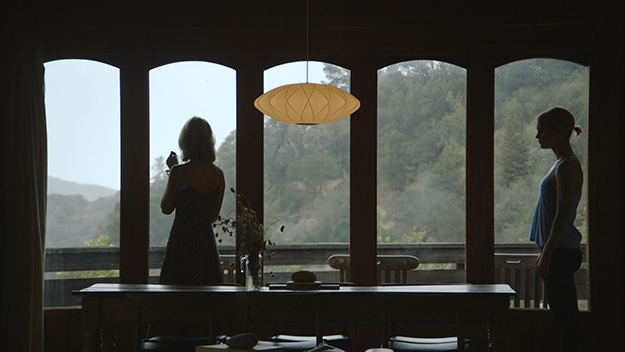
Cleverly constructed by Takal (whose previous feature was 2011’s Green) and writer Lawrence Michael Levine, who also appears (and who co-starred with Takal in his own Wild Canaries, 2014), Always Shine proves that what may not be so startling once can become a whole other thing when repeated. Soon afterward, we find ourselves watching another woman shot in exactly the same way, in what is presumably another screen test. Anna (Mackenzie Davis) is a scowling, assertive young woman raging at a garage mechanic about some over-priced car repairs; the garage man gets defensive: “If you were a touch more ladylike…” But Anna’s scene isn’t acting: it’s real, and she’s genuinely as combative as Beth, in and out of character, is compliant and submissive.
But what might seem like Beth’s weaknesses have served her well. She and Anna are old friends, struggling to establish acting careers in Hollywood, but Beth is doing so much better. She has just featured in a magazine’s prestigious Young Hollywood issue, and has a visible enough TV presence to get her half-recognized in a diner (a wonderfully painful scene with a pithy cameo for Colleen Camp, herself a cheesecake specialist in her day). She also has a burgeoning career in horror films, most of which require her to appear naked. Now Beth is about to play a lead role in another “stupid movie.” While on a Big Sur getaway with Anna—much of the film is set in their holiday house—she explains that the part is good because it’s the lead, “and against type.” “What’s your type?” Anna can’t help snarling. “The wilting flower type?”
The opposition is somewhat schematic, perhaps: vulnerable Beth, who has succeeded by playing the most classically “feminine” role, versus tough “masculine” Anna, whose defiantly autonomous nature has damaged her career prospects. Inevitably the pair come to blows, partly because of Anna’s professional jealousy, partly because Beth’s dark side doesn’t take long to emerge from behind the ingénue facade. Beth resents that Anna is a much better actress, and won’t help her catch up in the success race: she has delayed sending Anna’s clip reel to her own agent, and hasn’t even bothered to mention that an indie director is keen to cast Anna in an avant-garde short.
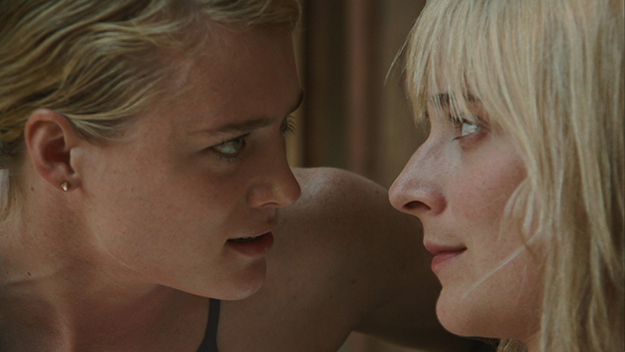
The pair’s enmity fully emerges when a man enters the scene; for all its feminist intent, Always Shine won’t get the highest Bechdel score. In a bar, the two women find themselves chatting to a handsome middle-aged guy (Michael Lowry), an amiable blowhard who spins them tales about his adventures in China. Anna is hooked, leaning in close, giving the guy an unmistakable come-on, while Beth mopes petulantly, starved for attention. But it’s Beth that the guy sneakily asks for a date—in a cleverly shot scene in which we see Anna scowling at the pair through glass in which we see Beth’s reflection. Beth is being watched, and knows she’s being watched—and, it’s implied, enjoying the narcissistic pleasure of that knowledge, especially as it involves a defeated sexual rival.
Things take a nasty turn, as we know they’re going to—Takal and editor Zach Clark have a sly trick of splicing scenes together with overlaps spiked by little subliminal flurries of seemingly extraneous material—like a sudden shot of the sea, accompanied by a sound of waves so brief and obtrusive (I’m describing a split-second effect, so this may not be 100 percent accurate) that the cut and the sound of water together something like a knife slash.
I’ll quickly throw in a SPOILER ALERT before saying that the film’s final third throws it into a zone somewhere between Persona and Single White Female. At one point Anna, naked and seen from behind, starts to dress, gazing straight at the camera, which is presumably standing in for a mirror; she puts on Beth’s short, flimsy dress and starts to suck her thumb in a coy, sexualized little-girl way. It’s a grim parody of Beth’s femininity—except that now, to all intents and purposes, Anna has become Beth. To bring this point home, Caitlin FitzGerald is now intermittently seen walking through the background, wearing clothes and doing things previously associated with Anna, and generally playing baleful nemesis to the new Anna/Beth played by Davis.
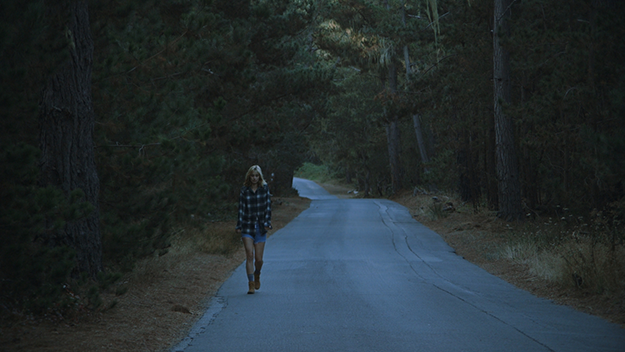
It’s hard to know at this point which woman is which, and how much the events we’re seeing are real—that is, real in a psychological sense relating to Anna’s traumatized delusions, as opposed to non-real in the sense of a self-reflexive fiction about the idea of identity exchange. Like the films mentioned above, Always Shine is a female doppelgänger movie. But while male takes on this theme—a recent example being Denis Villeneuve’s Enemy—are often to do with the idea of escaping one’s own life by fleeing illicitly into someone else’s (cf. Antonioni’s The Passenger), in female versions the theme is more likely to do with sexual rivalry, often with the fantasy of being a conventionally ideal woman (cf. Black Swan, L’Appartement, Alex Ross Perry’s recent Queen of Earth, and Marina de Van’s bizarre 2009 Don’t Look Back, in which Sophie Marceau and Monica Bellucci ended up sharing the same digitally bisected face).
Always Shine is very sharp on language and body language, and FitzGerald—even when, especially when, Beth is nervously drawing into herself—is adept at showing how her character uses helplessness as a weapon. There’s a horribly funny moment when, having accepting a lift from an insistent smooth talker, Beth leaves the man’s car and heads for her house in an extraordinary gait that denotes clumsiness, dorkiness, clueless fragility—as though she has so internalized her horror-victim movie roles that she can’t help even running like those girls.
The worst you can say about this fascinating but flawed film is that it’s a little academic; its surprises aren’t always that surprising, and Always Shine would perhaps lend itself a little too easily to being material for a 101 seminar on Women in Hollywood and the Mechanics of the Gaze. But its slyness and seriousness are compelling, the acting is terrific—with Davis and FitzGerald brilliantly handling the personality exchange—and there are some sleekly executed touches of genre come-on in the editing, with its hints of Nic Roeg dislocation.
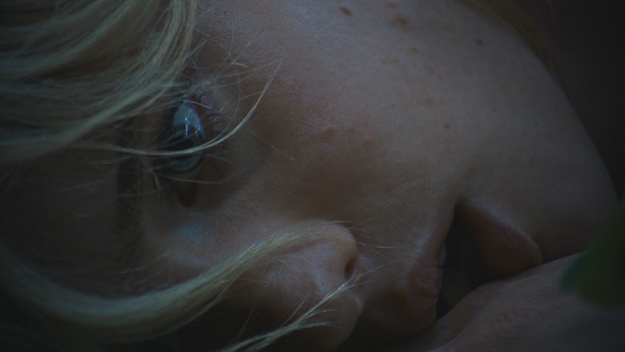
Always Shine also makes telling use of echoes, as in a repeated bathroom scene. First DP Mark Schwartzbard’s camera glides slowly, teasingly, round a corner, not quite revealing a naked Beth under the shower. Anna enters the shot, her arrival triggering the erotic frisson of having two women, one naked, in the same space—at which point the camera catches Anna in a mirror, staring reprovingly at us for having such prurient thoughts. Later, unsettlingly, the very same camera move reveals Anna instead in the shower. There’s surely a thesis to be written on female shower scenes in mainstream movies—see Nocturnal Animals, in which Amy Adams’s character showers extensively, so disturbed is she by the gritty-realist novel she’s reading. The rationale for such scenes is that it shows a female character figuratively naked, facing a terrible truth, feeling driven to wash off the horrors of life; while all these ideas are kept in play against our awareness that we’re actually just watching a naked actress get wet. It’s the equivalent of the classical topos of vanity in academic nude painting. A naked woman staring philosophically at a mirror is still a naked woman, and by implication—so the convention goes—even more so, more entirely exposed in body and soul.
“Do you ever feel like a whore?” Anna asks Beth about her nude roles. But, just as Haneke reels us in as complicit parties to the violence of that Code Unknown scene, this is what Takal is implicitly also asking the viewer. Do we feel like whores—or indeed, johns? Always Shine certainly encourages the admirer of stereotypical Hollywood women to feel a little dirty. Who’s ready for their shower now?
Jonathan Romney is a contributing editor to Film Comment and writes its Film of the Week column. He is a member of the London Film Critics Circle.







